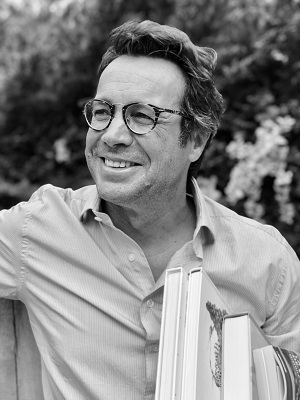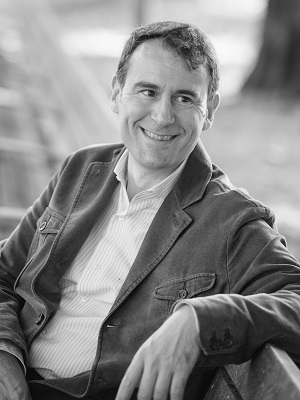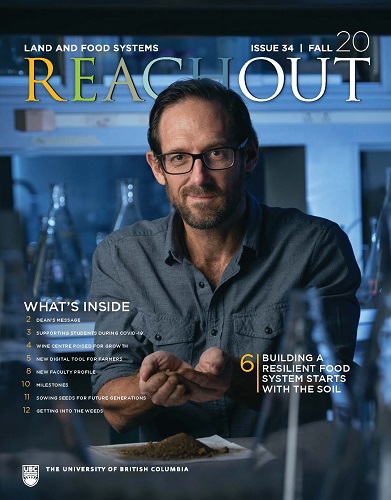Wine Centre Poised for Growth

Jacques-Olivier Pesme

Simone Castellarin
The Wine Research Centre has expanded to Kelowna campus!
The Centre is now a dual campus initiative as it sets down roots at UBC Okanagan, in the heart of B.C.’s wine region. It is led jointly by Land and Food Systems and UBC Okanagan’s Faculty of Management and Irving K. Barber Faculty of Science.
Jacques-Olivier Pesme, who’s worked with the B.C. wine industry since 2012, is the Centre’s new Director. Based at the Kelowna campus, he works in the Faculty of Management, and is also a Professor in Wine Business at the University of Adelaide (Australia).
The Centre’s new Associate Director is Simone Castellarin, Canada Research Chair Tier 2 in Viticulture and Plant Genomics. An LFS Associate Professor, Castellarin has been involved with the Centre for six years, providing continuity and research expertise. We caught up with Jacques-Olivier (JO) and Simone to discuss the Centre’s expansion.
What do you think will be the biggest impact for students at UBCV and UBCO?
JO: The wine industry contributes more than $3 billion per year to B.C.’s economy. It has created more than 10,000 jobs. It offers many opportunities for the younger generation because the world of wine, historically traditional, is evolving and new skills are needed. New courses, co-op, events, certificates, etc… there is a lot to come for UBC students.
Simone: UBCV and UBCO have outstanding scientists and instructors, from wine chemistry to wine business and geography, sustainability of grape and wine productions, and climate change. The new WRC will favor student exchanges across campuses. Students interested in studying wine and grape production will have access to courses and labs that cover those topics.
What industry collaborations are most promising now that the Centre has a base at the Kelowna campus?
JO: Proximity is the key word. Wine is a non-relocatable good. A wine from the Okanagan cannot be produced anywhere else and the Okanagan Valley represents more than 80% of B.C. wine production. To work with the industry, we have to be where the wine is made and where most of the visitors come for a B.C. wine experience. That being said, we’re based in Kelowna and Vancouver, but we do work with all sub-regions of B.C., including the nice wines from Vancouver Island.
Simone: UBC Okanagan labs are conveniently located closed to vineyards and wineries where most of the grape and wine research is conducted. While the WRC has always had strong ties with the wine and grape industry in the Okanagan Valley, having its headquarters in Kelowna will strongly increase the opportunities for research collaborations.
The Centre already has international collaborators for its research, how do you see this changing in the future, if at all?
JO: As the wine market is a global market, full of small- and medium-sized enterprises, international collaborations are essential to gather and disseminate knowledge. I want to reinforce this aspect with key partners in Europe, Oceania and North America. In that spirit, we have recently joined Oenoviti (oenoviti.com), the largest oenology and viticulture research community in 2019 and the International Vine and Enology Society (IVES – ives-openscience.eu) in 2020.
Simone: The new WRC groups together about 20 UBC professors with various expertise and research interests. This new endeavor will enhance existing relationships and create research initiatives with international collaborators from well-recognized wine institutes.
Each of you brings different experience and perspectives to the Centre. How do you complement each other?
JO: Wine is a complex product and what is in the bottle starts with what is in the vineyards. Viticulture is Simone’s expertise. Mine is about strategy and wine regional competitiveness. I strongly believe in a multidisciplinary approach. In a sense, Simone works for improving the quality of B.C.’s grapes and I work for strengthening the recognition of B.C.’s wines around the world. Nevertheless, at the end of day, a global reputation requests very high quality standards.
Simone: I agree with Jacques-Olivier. In short, my work and interest is funded in plant science and viticulture, while Jacques-Olivier’s background is in economics. Both of us are passionate to help push the wine industry forward and support it through innovative research and education.
What is special about B.C. wines? What do you find most exciting about our local wines?
JO: Their diversity. Even if I am not sure about the reason for such diversity. Most exciting… there is a lot to say, but to me the most exciting is the next vintage and the new developments to come at the WRC. We are entering a new promising cycle.
Simone: The strong commitment of wineries to high quality that results in continuous improvements to the wines, season by season. The industry is further expanding in new wine regions and we look forward to supporting them.
To learn more about the UBC Wine Research Centre, visit wine.ubc.ca.
Tagged with: 2020, Faculty, Wine Research Centre
